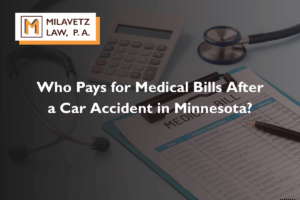With the passing of the Affordable Care Act, many people who had previously been unable to obtain insurance now enjoy the benefits of medical coverage. Unfortunately, the new act did little to eliminate a growing problem in the country which is declaring bankruptcy for medical debt. In a 2013 study performed by NerWallet Health, the soon to be number one cause related to bankruptcy filings is going to be related to unpaid medical bills surpassing previous primary causes of credit card and mortgage debt.
Why are people having problems paying their medical bills even if they have insurance?
With skyrocketing medical costs for even minor procedures, it is easy to amass a large amount of debt related to medical conditions and events. Ethan Austin co-founder of GiveForward was echoed this sentiment by stating “It’s not just the medical bills it’s really everything around the bills that insurance won’t cover.” The sad truth is that 78% of people that have filed for bankruptcy have been people who have been insured. Medical costs can cover a wide range of charges including:
- Co-pays – Major medical treatments will often include multiple co-pays for prescriptions, hospitals, procedures, and each doctor involved in treatment.
- Co-insurance – Many major tests, hospital stays, and procedures will require the patient to pay a percentage of the total referred to as co-insurance.
- Deductible – A health care deductible is the amount that a patent must satisfy before the insurance begins paying out their portion of the expenses. Due to the increasing cost of health premiums.
- Uncovered charges – There are many charges related to medical treatment that does not fall under the items covered by many insurance policies.
What factors have led to the drastic increase in medical costs?
Many people were hit hard by the recession ten years ago, and due to the fact that medical benefits were tied to employment benefits, when millions of people lost their jobs, many were left without insurance or the expensive option of using COBRA. When people were faced with the prospect of paying their mortgage or paying for health insurance, the former often won out.
To combat the problem of so many people being left without medical coverage the Affordable Care Act was created to provide insurance for those who were previously uninsured or underinsured. With the new policies related to the act, insurance companies increased their costs and lowered the amount of coverage they provide. These rate increases along with increased costs due to newer technology and drug research has led to high charges for even simple medical visits. This consistent increase in medical costs is making it the largest portion of many consumer’s debt.
The challenges of filing bankruptcy for medical debt
Even though medical costs are a life necessity, discharging them in bankruptcy can affect consumers in the same way that a bankruptcy for credit card or mortgage debt would. This means that filing bankruptcy under either a Chapter 7 or Chapter 13 can cause a significant hit to your credit score for at least ten years even if the debts are repaid through a court-ordered repayment plan.
One of the difficulties that consumers may face when filing for bankruptcy is which type to file and if it is possible to get some of the debt discharged without discharging others. A popular route for those who may feel they will be unable to settle debt even under a repayment plan, is a Chapter 7 bankruptcy filing. The difficulty with this filing is that Chapter 7 can wipe out your mortgage debt but not the lien on the collateral, so many consumers may want to try to discharge credit card debt and medical bills without discharging their home mortgage so that they can prevent the loss of their home due to liquidation.
Another difficulty with attempting to discharge debt is when medical expenses are still occurring. While a bankruptcy can possibly wipe the slate clean, if the expenses are continuing, you will find yourself back in the same situation you started with. It is important to find the balance between, making sure all of your major medical expenses are completed before filing without letting the expenses get unreasonably high.
















